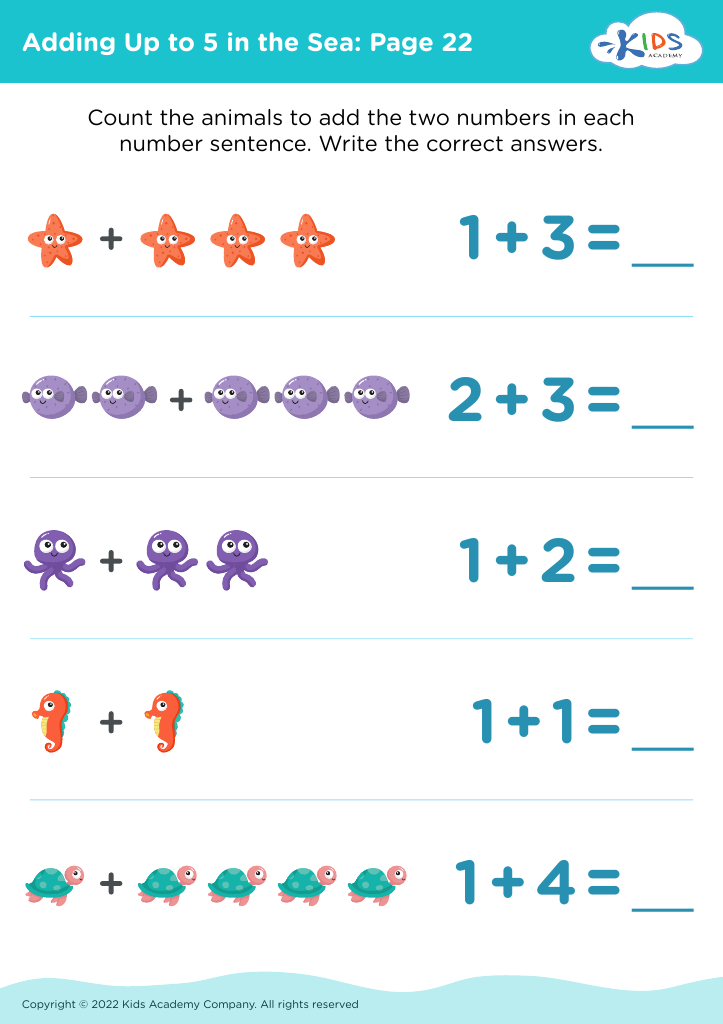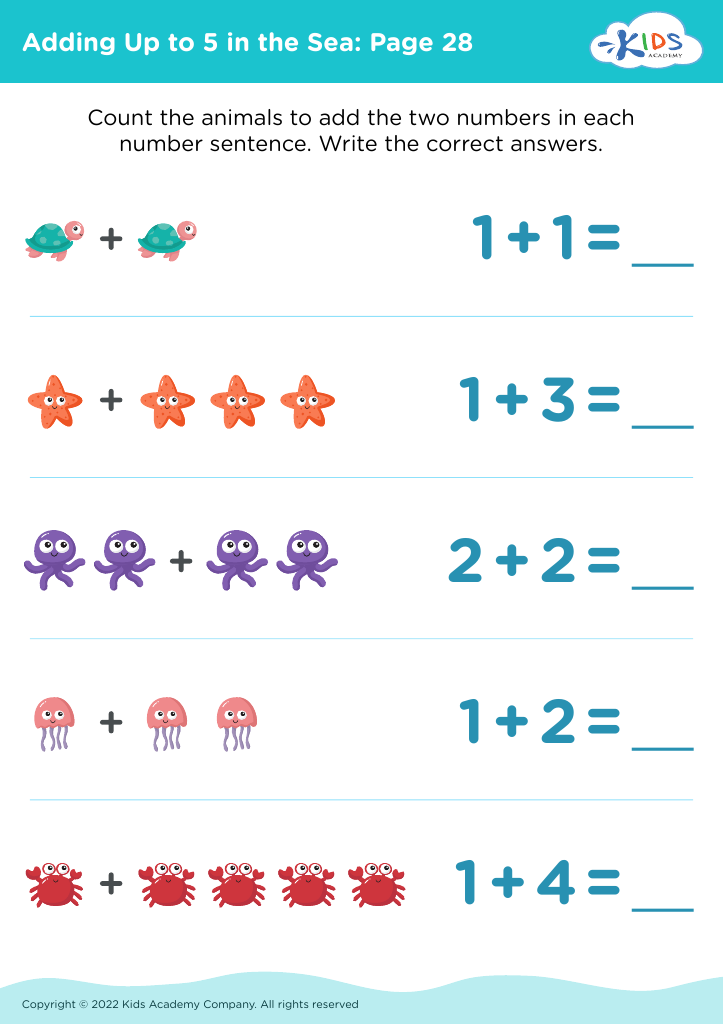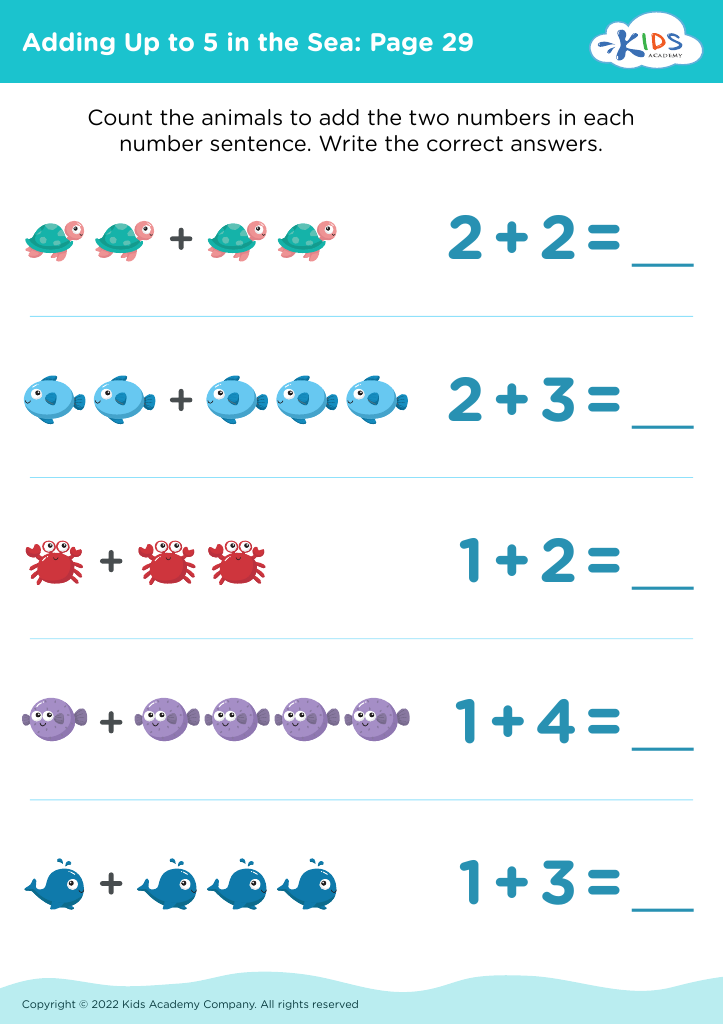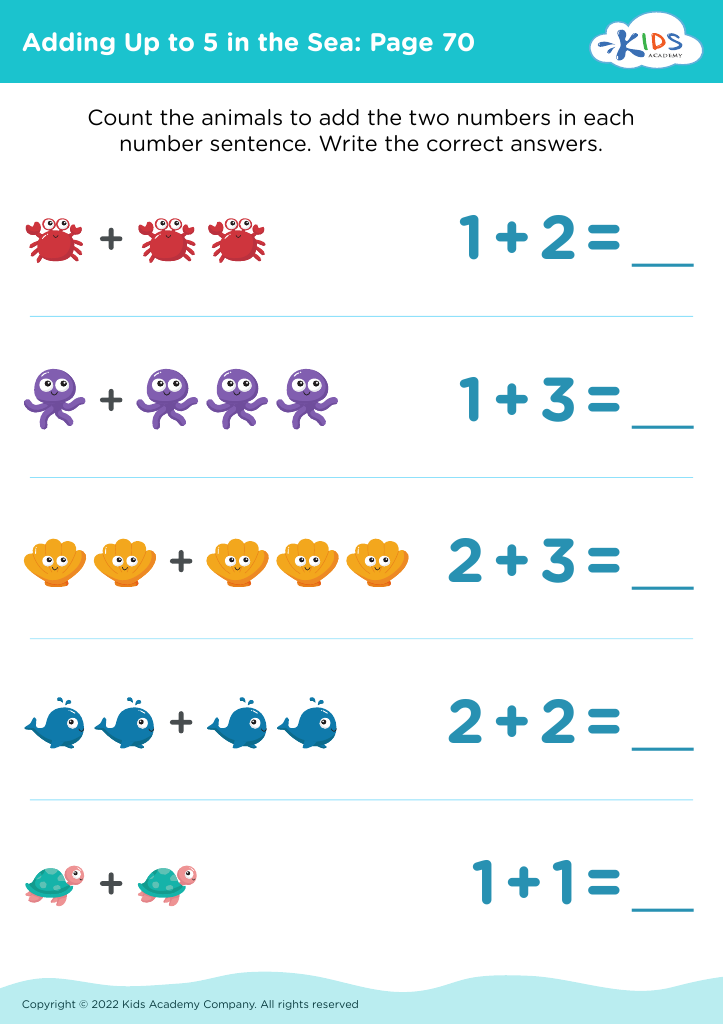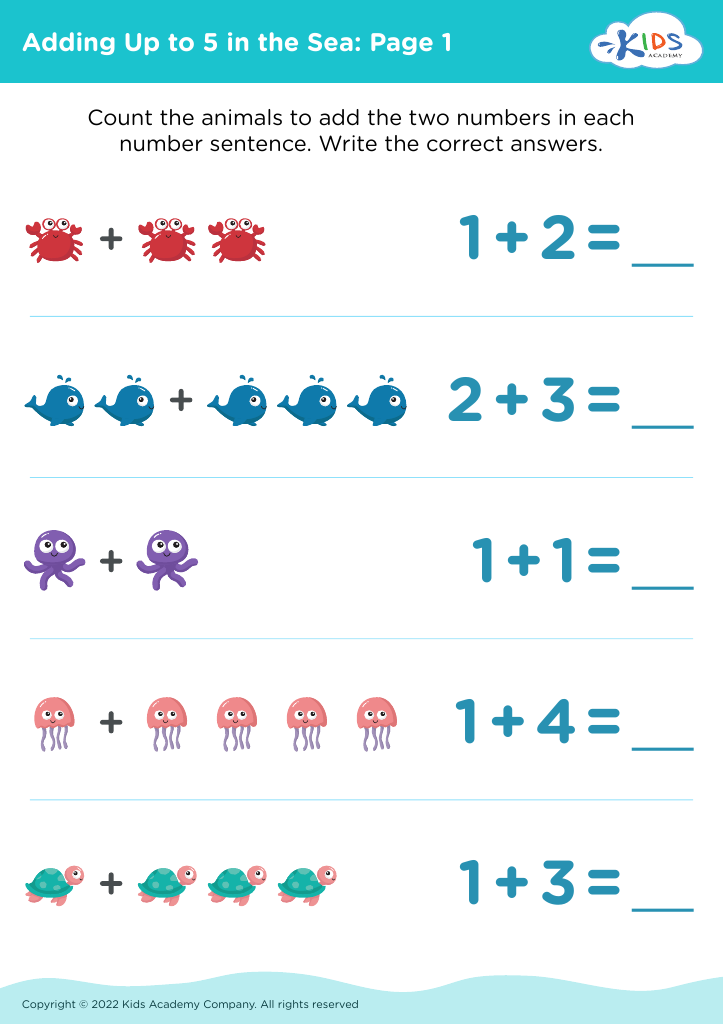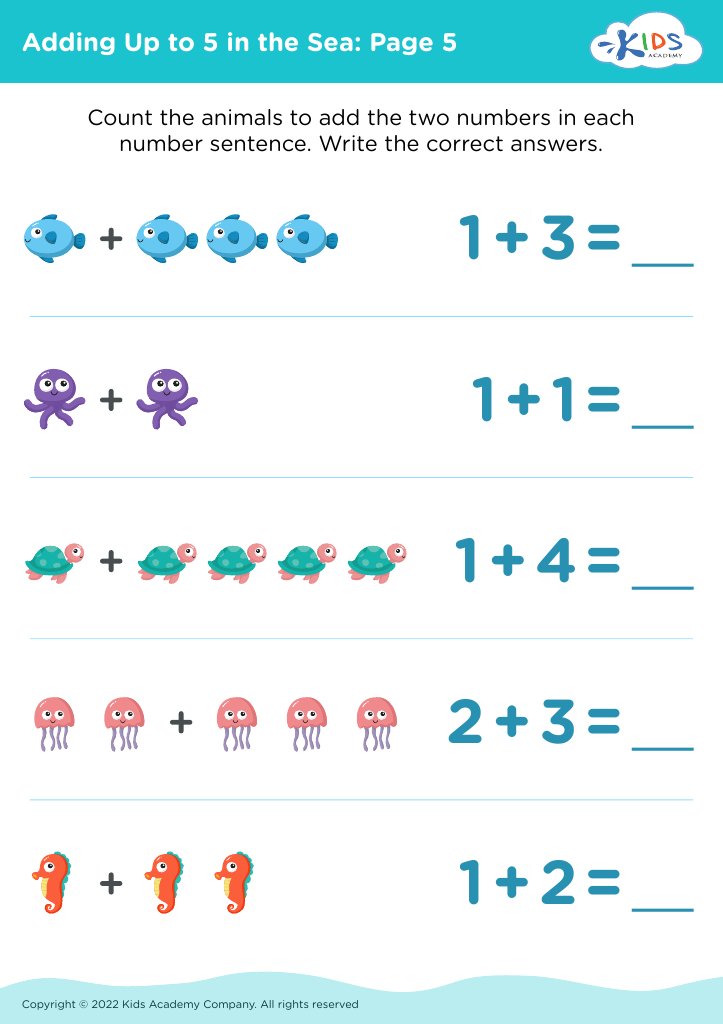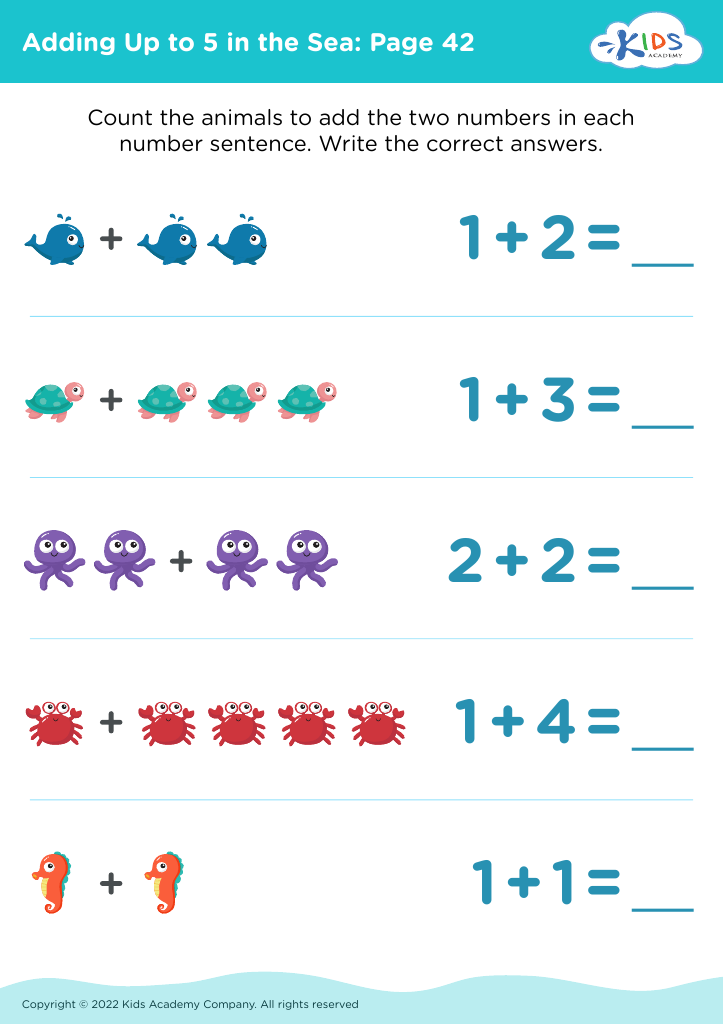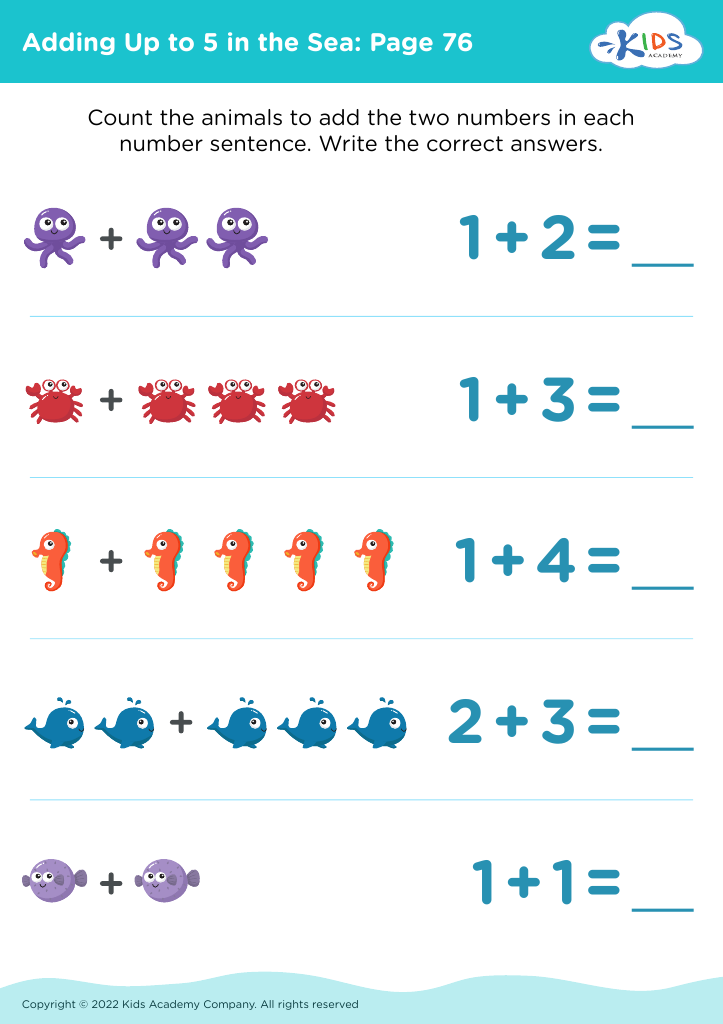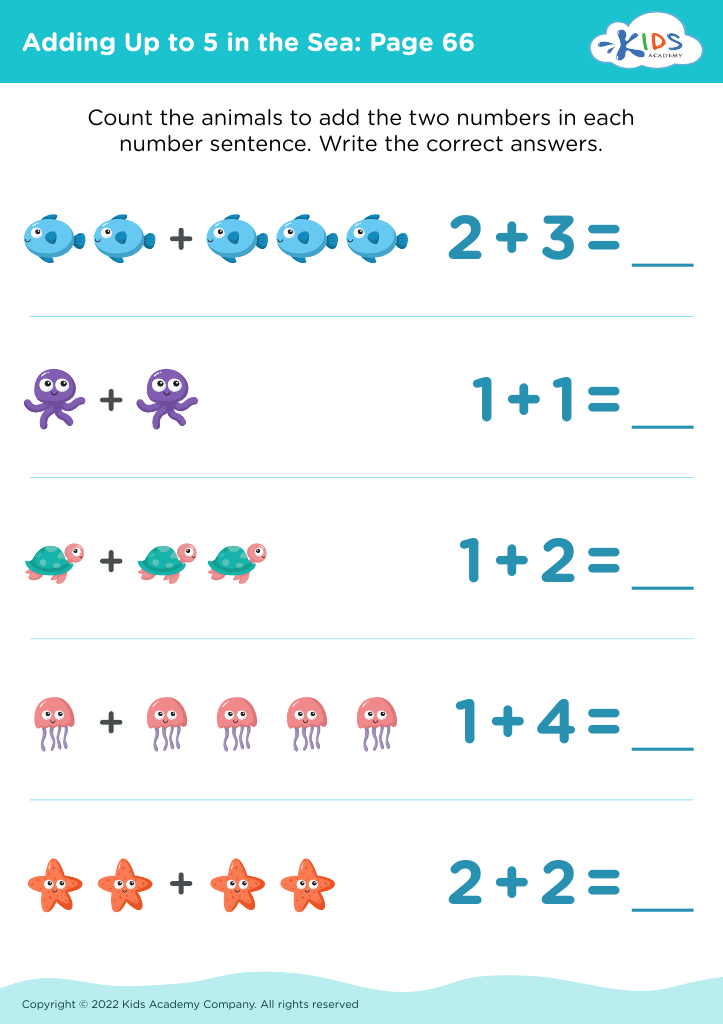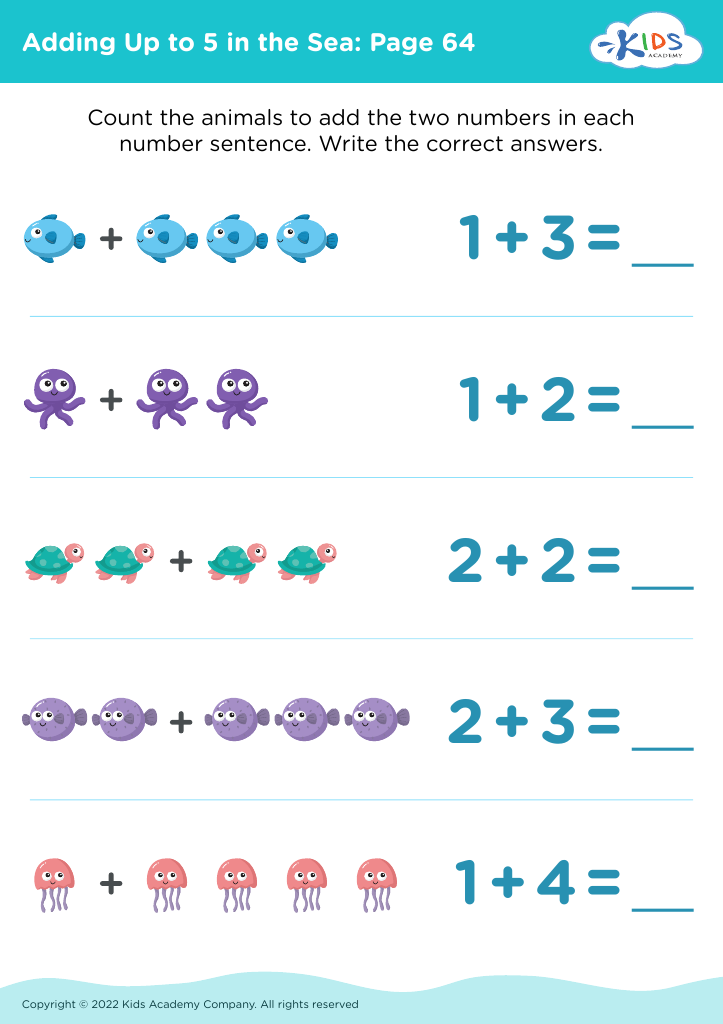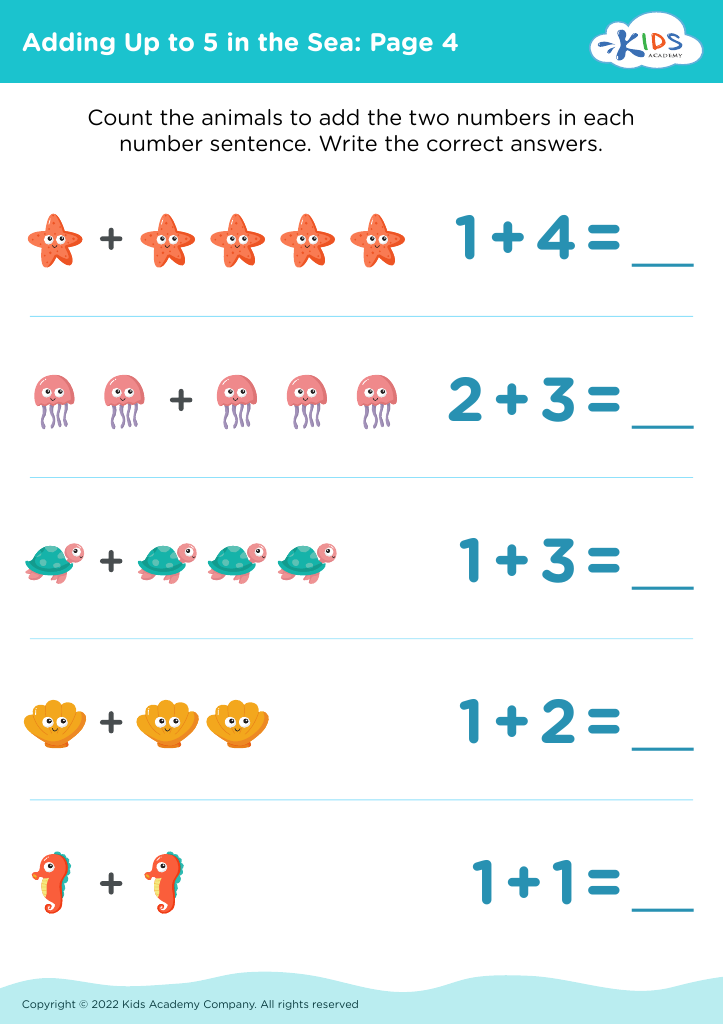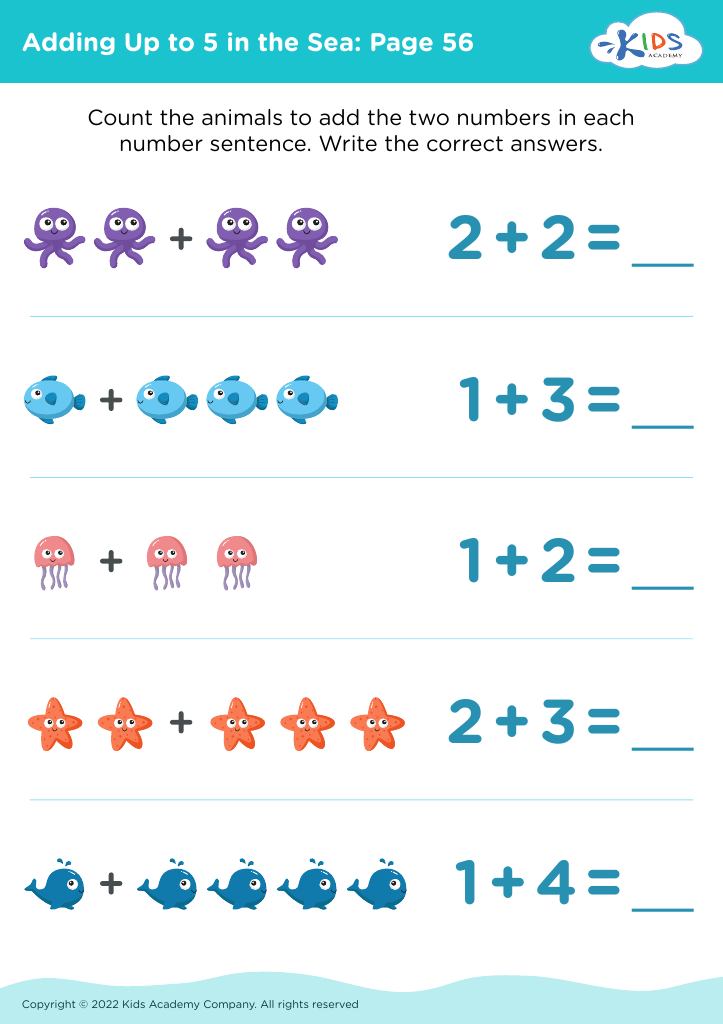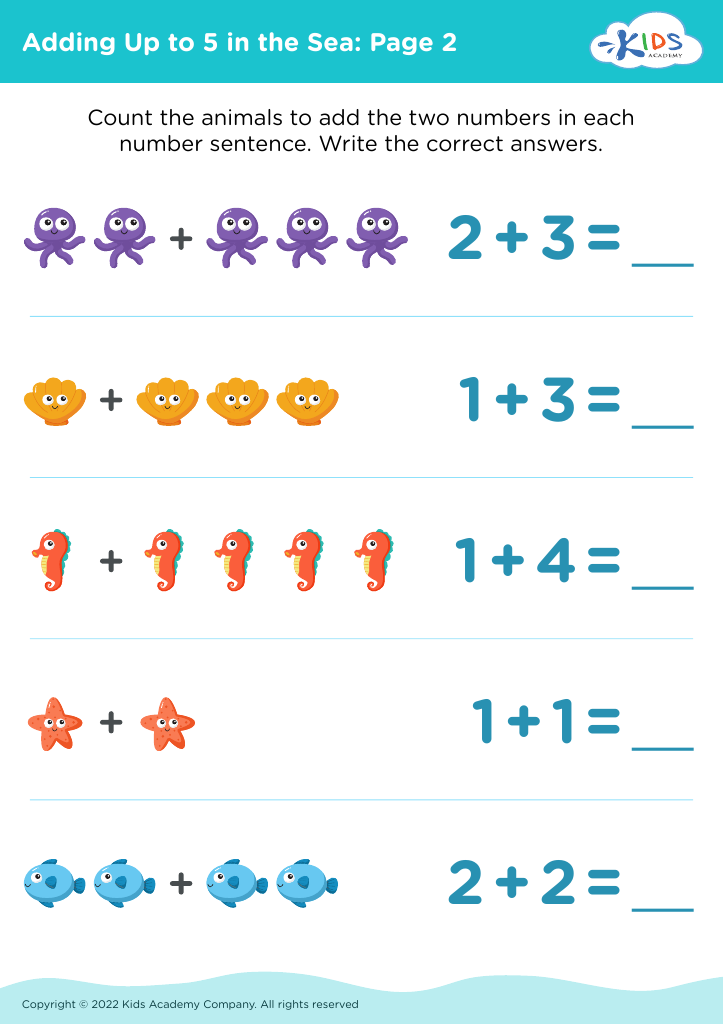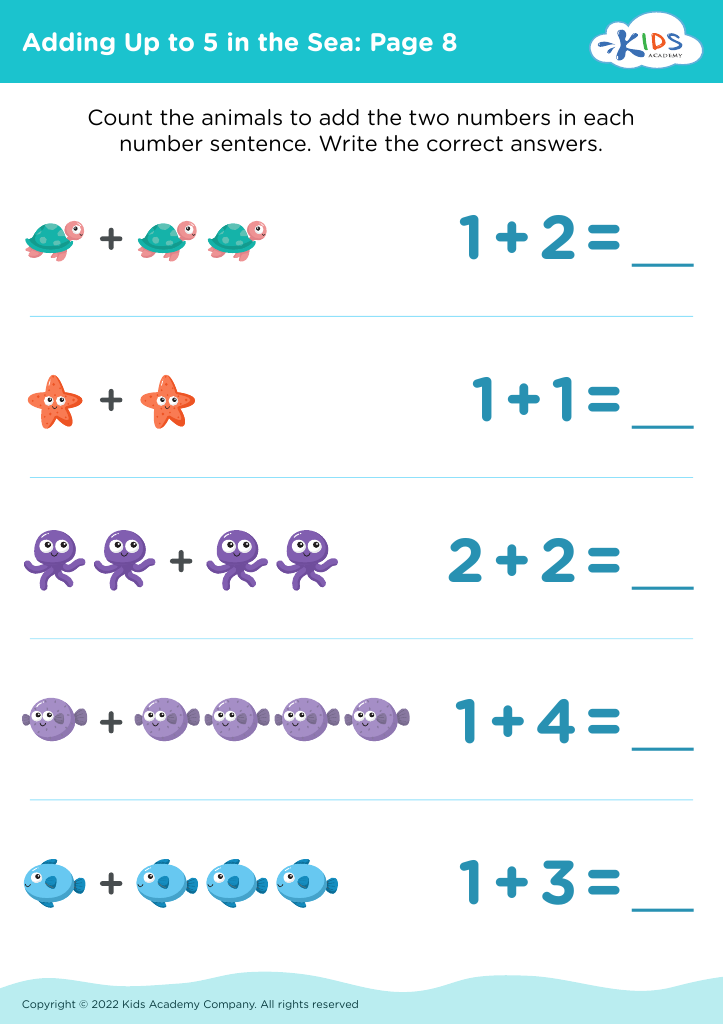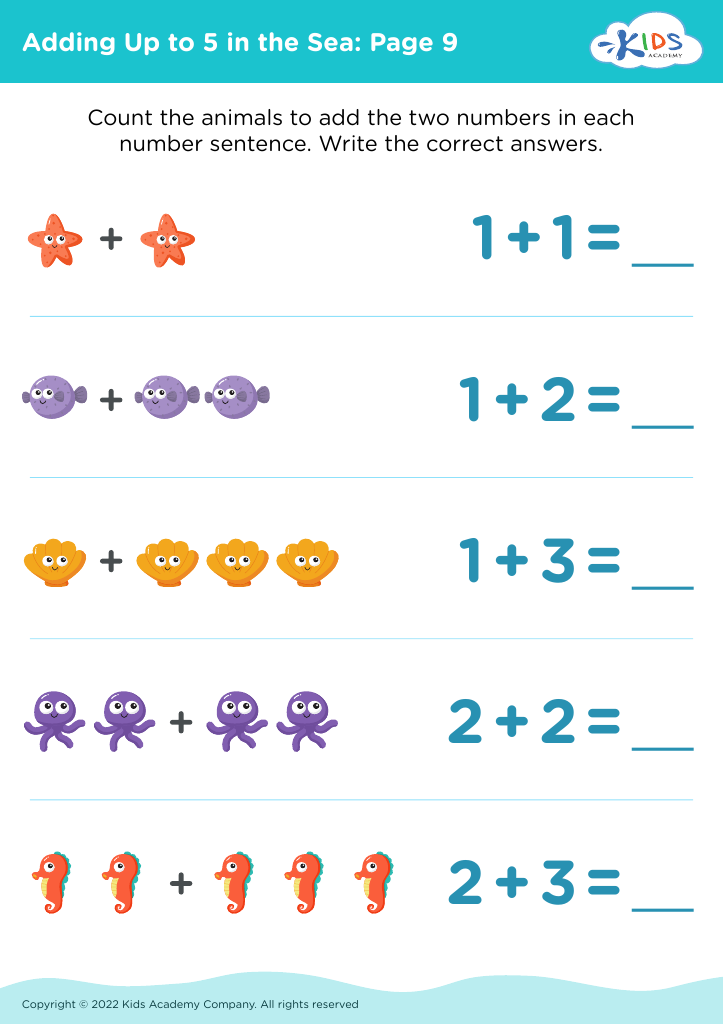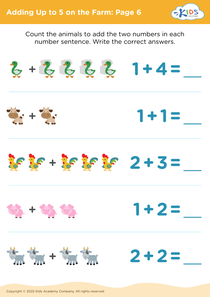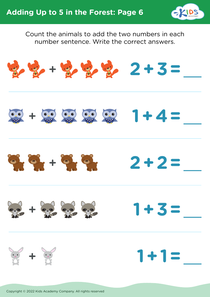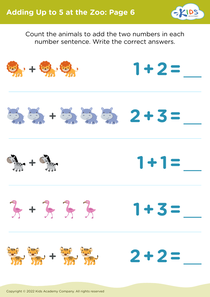Addition skills Adding in the Sea Worksheets for Ages 4-6
15 filtered results
-
From - To
Explore our engaging "Adding in the Sea" worksheets designed for children aged 4-6! These interactive materials use vibrant underwater themes to make learning addition exciting and enjoyable. Each worksheet is thoughtfully crafted to enhance your child's addition skills through fun aquatic illustrations and captivating scenarios. Kids will practice counting and combining numbers, developing their confidence in basic math concepts. Perfect for early learners, our worksheets promote critical thinking while making math a playful adventure. Dive into our collection today and watch your child's addition skills flourish as they journey through the exciting world of the sea!
Parents and teachers should prioritize addition skills, like those learned in programs such as "Adding in the Sea," for children aged 4-6 because these foundational skills are crucial for early math development. Mastering addition not only helps children understand numbers but also fosters problem-solving and critical thinking abilities. Engaging in playful themes, like an underwater adventure, makes learning enjoyable, sparking curiosity and a love for learning.
Moreover, early arithmetic skills lay the groundwork for more complex concepts in later grades, reinforcing cognitive development. When children grasp addition through fun and interactive methods, they are more likely to maintain interest in math and perform better in the future. Additionally, these skills promote logical reasoning and pattern recognition, key components in overall academic achievement.
As children experiment with numbers in a relatable and engaging context, they also develop persistence and resilience—essential traits for overcoming challenges in learning and life. Involving parents in this process enhances the educational experience, building a supportive home environment where mathematical discussions thrive. Ultimately, caring about addition skills at this stage not only equips young learners with necessary tools for academic success but also shapes positive attitudes toward mathematics as they grow.
